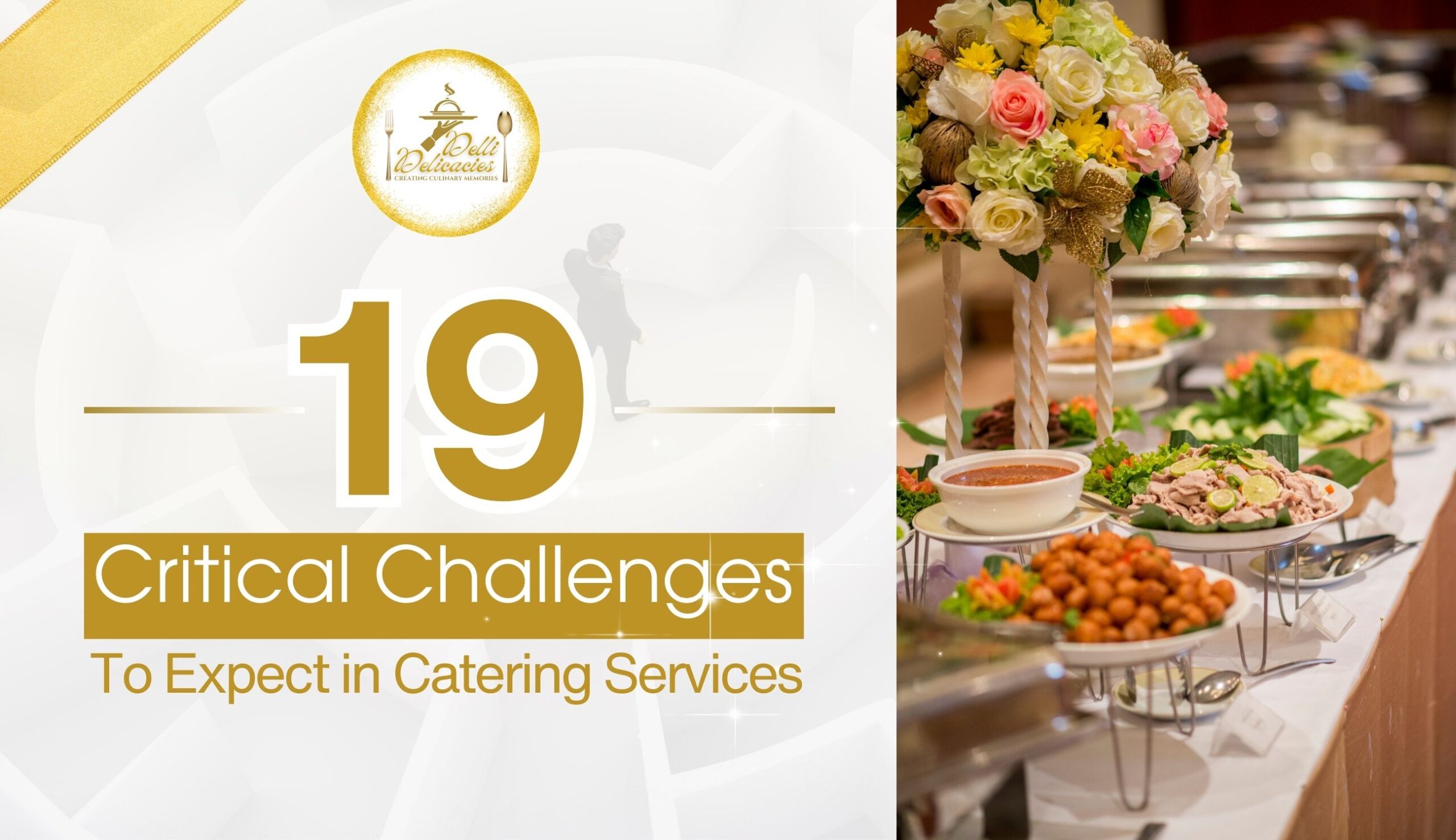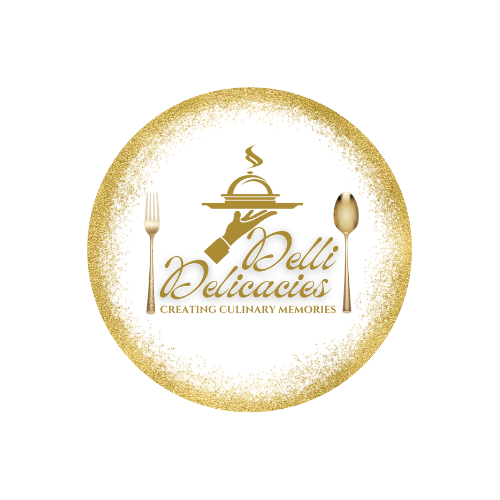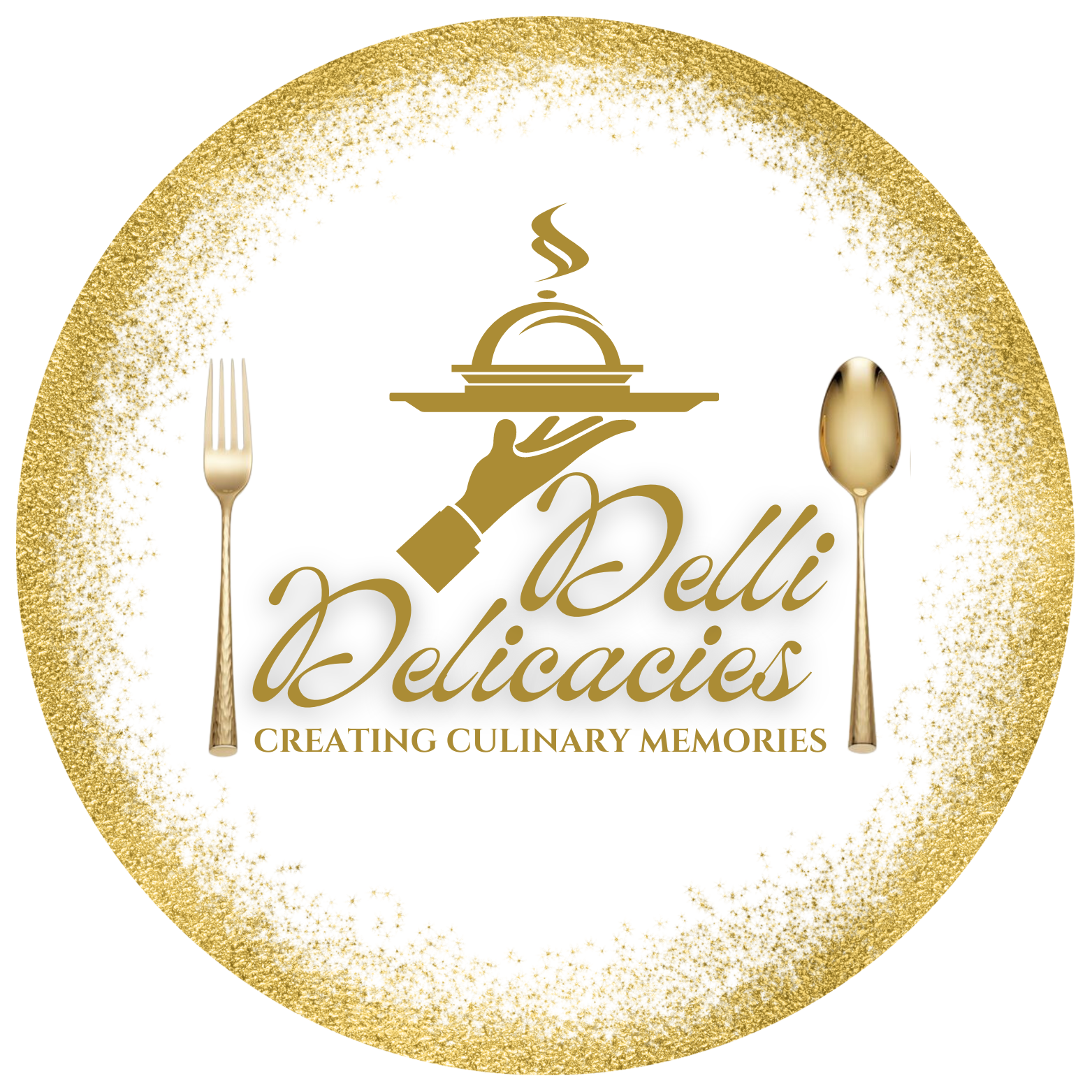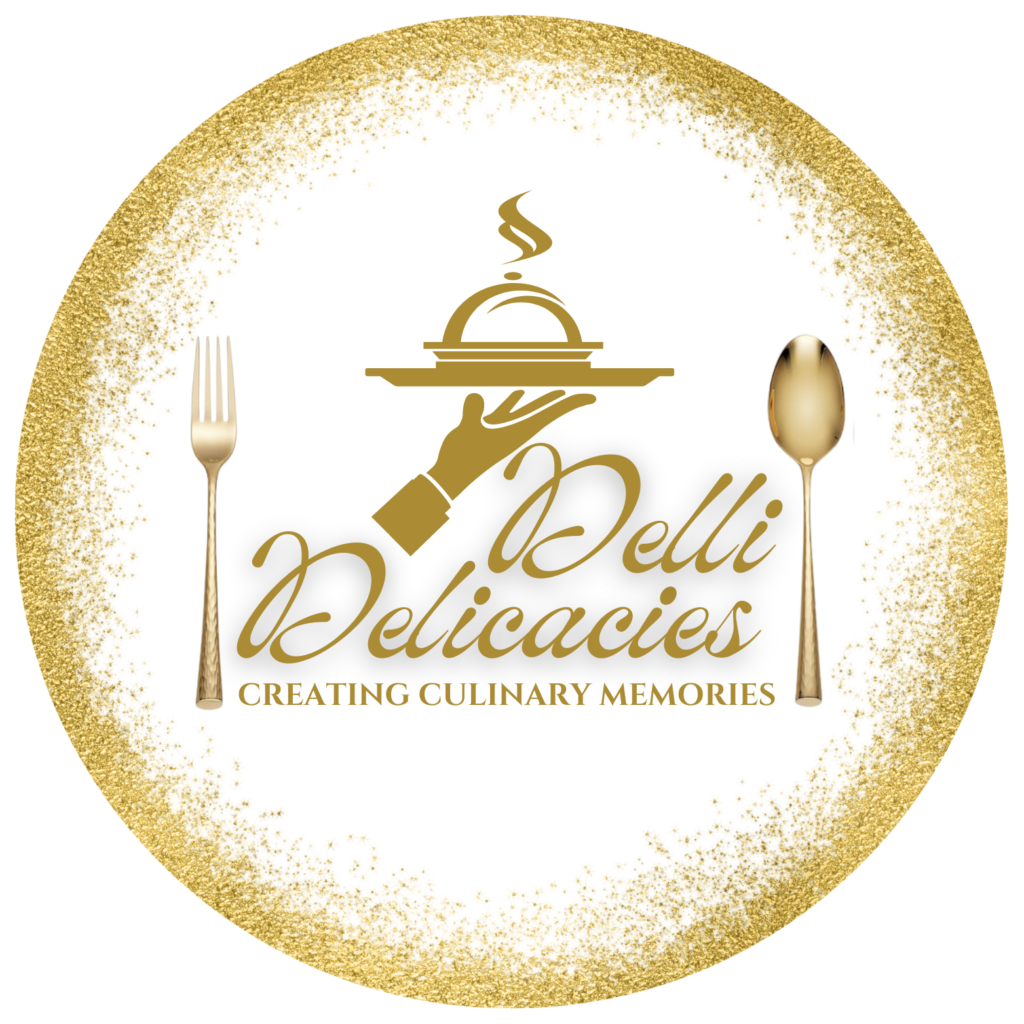
The 19 Critical Challenges To Expect In Catering Services
The catering services industry looks glamorous from the outside—elegant plated dishes, happy clients, and the satisfaction of turning your culinary passion into profit. But scroll past those Instagram-perfect moments, and you’ll discover a business landscape filled with unique obstacles that can make or break your entrepreneurial dreams.
With the global catering market continuing to expand, more aspiring food entrepreneurs are entering this competitive space. However, success requires understanding and preparing for the specific challenges that plague this industry.
Let’s know the 19 most critical challenges you’ll face when starting a catering services and how to overcome them.
Challenge 1: Intense Market Competition
The catering services business is a full of people who have a lot of experience and those just getting started. It’s easy for people with cooking experience to begin running a catering services company. There are so many options now that it’s increasingly tough for newcomers to grab attention. Consequently, new providers in the industry find it difficult to land contracts because established competitors draw repeat customers.
It’s important to make a strong USP to get noticed in the noisy marketplace. Examples include diet menus like keto or allergen-free, a one-of-a-kind food style, or offering valuable add-on packages. The right branding and reliable service quality allow a business to ask for higher prices and gain customer confidence.
Challenge 2: Financial Investment and Cash Flow Management
A catering services needs a lot of capital up front. You may need to invest $2,000 at the start, but a professional setup can run from $10,000 to $50,000. Moreover, earnings vary throughout the year since customer demand shifts and payment schedules are unpredictable. Sometimes, entrepreneurs don’t take into account these extra charges, which causes financial pressure.
To prevent this, you need a well-rounded financial plan. Starting with just half the payment, having some cash reserves, and leasing instead of buying can control what you spend. Apart from teaching people to cook, you can earn money by preparing meals for them.
Challenge 3: There are periods when businesses are less busy and revenue drops.
The most business is seen during weddings, holidays, and corporate events, but there are big drops during January to March and the hottest months. The ups and downs in income make it hard to manage your money. Keeping a budget is challenging if the business brings in money at drastically changing rates.
By offering holidays, hosting culinary classes, and supplying meals for businesses during the day, caterers can remain busy all year long. Sponsoring events regularly at certain locations and cutting expenses during peak times can see you through weaker periods of demand.
Challenge 4: Training and Skill Development
Trends in cooking change fast, driven by health fads, changes in cooking methods, and changing ideas about looks. The majority of clients want to see caterers providing plant-based options and daring new cooking techniques. Remaining unaware of new trends can cause you to lose contracts to competitors that are ahead. It’s a critical challenge in catering services. Staying current means you must get regular training. Schedule learning sessions when things are slow, keep a subscription to industry journals, and engage with fellow professionals so you stay current and give the best services.
Challenge 5: Managing what a client expects can be a challenging task.
Clients tend to have unique ideas, budgets, and ways they communicate. What pleases one person may not satisfy someone else. Finding a way to deal with these unique needs and still ensure good services can be tough. Ideal interactions with challenging clients are necessary to keep your business reputation intact. Do precise consultations to discover what the client wants from you as soon as possible. Deliver service packages with set guidelines, yet keep your attitude open and professional. Record every agreement so that there is no confusion and everyone follows the same guidelines.
Challenge 6: The Process of Finding and Acquiring Customers
Developing a first client list is extremely challenging for anyone starting a catering service business. Using regular advertising is frequently not affordable and rarely gives guarantees, but digital marketing may feel new to chefs. Getting leads and referrals is almost impossible without marketing.
Combining social media, networking, forming partnerships and giving incentives to refer people is an important part of marketing. Discounting your work at the start helps you build examples of your work and gives you testimonials that you can use in your marketing.
Challenge 7: Hiring and Retaining Reliable Staff
The hospitality industry has one of the highest employee turnover rates. Hiring staff who share your vision and maintaining their loyalty is tough, especially as skilled workers demand competitive wages. Inconsistent staffing can lower service quality and exhaust business owners who must fill in the gaps.
To build a dependable team, offer good pay, training opportunities, and performance-based bonuses. Cultivating a respectful and engaging workplace culture encourages retention. Cross-training employees also ensures adaptability during high-pressure events.
Challenge 8: Equipment Costs and Maintenance
Catering equipment isn’t just costly—it also wears out quickly. A malfunction during an event can be disastrous, potentially ruining both food and your reputation. Moreover, regular maintenance can be expensive. Smart buying decisions and preventive care can reduce such risks. Prioritize durable, reliable equipment over cheaper alternatives.
Develop a maintenance routine and keep a reserve fund specifically for repairs or replacements. For occasional needs, renting specialized gear can be more economical.
Challenge 9: Regulatory Compliance and Permits
Navigating business licenses, food handling certifications, insurance, and other regulations can be overwhelming. These requirements vary by location and may change frequently. Non-compliance can result in fines or business closure. It’s wise to consult legal experts familiar with food service laws.
Joining industry associations can help you stay updated on regulations. Keeping a compliance checklist and conducting regular reviews can prevent legal issues and ensure smooth operations.
Challenge 10: Self-Management and Personal Limitations
Running a catering services business isn’t just about cooking—it’s about handling operations, finances, marketing, and customer service. Many chefs are not trained in business management, which can lead to burnout or neglected responsibilities.
Acknowledging personal limits is crucial. Delegating non-core tasks like bookkeeping or digital marketing and investing in business education or mentorship can lighten the load. Maintaining a healthy work-life balance also supports long-term success.
Challenge 11: Physical and Mental Stress
Catering Services involves physical labor—lifting, standing, and cooking—and mental pressure from managing events, logistics, and clients. Over time, this stress can lead to health issues or burnout. Prioritize self-care: maintain fitness, use ergonomic gear, and develop routines to manage stress. Short breaks, occasional vacations, and having additional staff on hand can greatly reduce pressure and improve performance.
Challenge 12: Project Management Requirements
Each catering event has unique logistics, timelines, and requirements. Coordinating food prep, transport, venue setup, and service delivery calls for precise planning. Mistakes here can lead to chaos and lost clients. Digital project management tools, detailed checklists, and standard operating procedures help keep everything on track. Training staff on your workflow ensures smooth execution even during complex events.
Challenge 13: Volatile Food Prices
Ingredient costs can change due to supply issues, seasonality, or global economic factors. For caterers working on fixed-price contracts, this volatility can squeeze profit margins. Contracts should include clauses to accommodate cost changes. Building strong supplier relationships and using seasonal menus can help control costs. Regularly reviewing market trends and adjusting your pricing strategy accordingly keeps your business viable.
Challenge 14: Government Approvals and Regulatory Agencies
Food businesses must deal with multiple regulatory bodies, and approval processes can be lengthy and costly. Non-compliance or delays in approvals can derail business plans. Early engagement with legal professionals, proactive communication with regulators, and exceeding basic safety standards can ease the approval process. Always account for regulatory costs in your pricing and planning.
Challenge 15: Food Safety and Temperature Management
Ensuring food safety across all stages—from procurement to serving—is non-negotiable. Inadequate temperature control during transport or setup can result in foodborne illnesses. Investing in reliable cooling and heating equipment, training staff thoroughly, and maintaining detailed records can safeguard food safety. Establishing protocols for every phase of food handling ensures consistent quality and legal compliance.
Challenge 16: Uncontrollable Variables
Factors like weather, venue issues, or traffic delays can disrupt even the most carefully planned event. These surprises can affect food quality and customer satisfaction. To minimize impact, always have backup plans. Build buffers into your timelines, keep spare equipment ready, and communicate proactively with clients about potential issues and your contingency measures.
Challenge 17: Complex Event Logistics
Catering Services events involve intricate logistics—managing food quantities, guest flow, dietary restrictions, and coordination with venues and vendors. Poor planning can cause delays, shortages, or even food waste. Site visits, detailed planning documents, and strong communication channels with event partners are essential. Estimating portions accurately and having flexible service flow strategies helps ensure smooth execution.
Challenge 18: Conflict Resolution
Complaints are inevitable in the catering services business. Whether it’s due to service delays, venue problems, or other uncontrollable issues, clients often direct their dissatisfaction at the caterer. Mishandled complaints can harm your reputation. Having a professional approach to resolving conflicts, listening actively, offering reasonable remedies, and documenting interactions can help turn negative experiences into positive ones.
Challenge 19: Building Brand Reputation
Establishing a trusted brand takes time and consistent excellence. Every interaction—from initial inquiry to post-event follow-up—shapes your reputation. Social media amplifies both good and bad reviews. Prioritize outstanding service at every touchpoint. Actively collect testimonials, maintain a polished online presence, and build referral partnerships with other trusted vendors. A strong reputation is your best marketing asset.
Turning Challenges into Competitive Advantages
Though these challenges in catering services may seem daunting, each one is also an opportunity. Businesses that overcome them not only survive—they thrive. Real success comes from preparation, resilience, and a willingness to learn from experience.
Best catering services in Delhi NCR
Delli Delicacies represents fine food and experiences that are hard to forget. Formed in late 2010 out of a compact 10×10 sq ft kitchen and one cooking range, the company has become a trusted brand for premium catering services in Delhi NCR. Now, Delli Delicacies provides weddings, corporate occasions, celebrations and remote events with five-star menus and excellent catering service thanks to a new 3000 sq ft kitchen and over 50 strong professionals.
Even so, the process hasn’t always been easy. In order to grow amid tough competitors, secure trust from clients and offer the same excellent quality at every event, we had to adapt and be resilient. The team has overcome issues with logistics, staff hiring, changing what clients expect and new trends in food presentation and flavor. Supply chain issues and the task of assembling major events both call for great precision and careful planning.
In spite of all these problems, Delli Delicacies is still dedicated to being innovative and real and giving clients the service they need. Because they pay close attention, are devoted to quality, and are passionate about food, every event offered by them feels special. Those who hope for more than catering alone will appreciate the true quality and magic Delli Delicacies makes every occasion possess.


